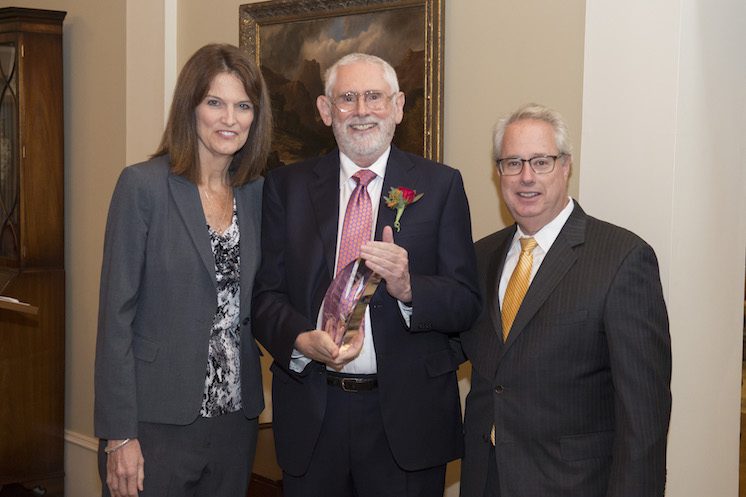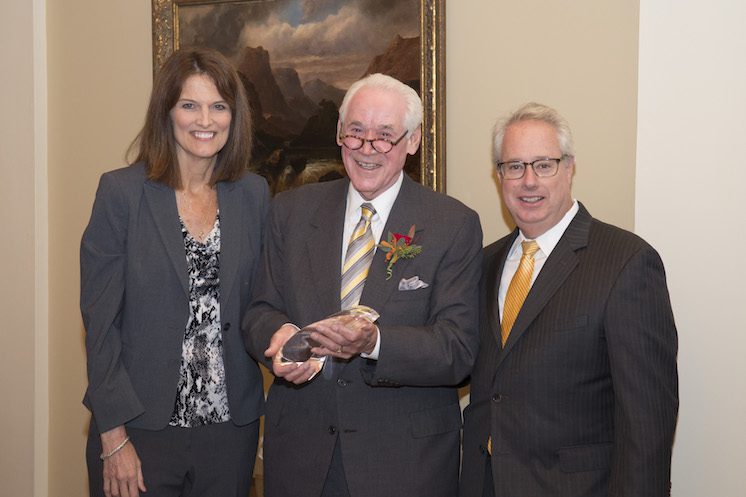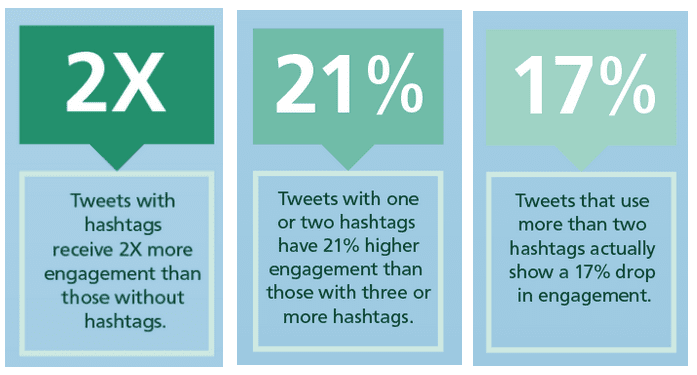McDonough MBAs Visit Fair Oaks Farms For First-Hand Look at Sustainable Business

Last month, 18 Georgetown McDonough School of Business MBAs visited a sustainable dairy farm as part of Associate Professor Ed Soule’s Principled Leadership in Business and Society course. According to a press release, the class visited Fair Oaks Farms in Fair Oaks, Indiana to get a first-hand look on how sustainable businesses work. Continue reading…
Chicago Booth Professor Richard Thaler Takes Home Nobel Prize in Economics

A professor from the University of Chicago Booth School of Business has won top honors in the field of economics. According to a press release, Richard Thaler was awarded the Sveriges Riksbank Prize in Economic Sciences in Memory of Alfred Nobel 2017. Continue reading…
Finding the Best One Year MBAs in Philadelphia

Most applicants pursuing a one-year MBA generally know which industry or area of concentration they want to pursue. They are MBA candidates who want to advance their current careers, not switch them. Others chose the one year route because it can be difficult to leave two years of work and salary. If you’re a prospective MBA in the Philadelphia metro looking to make moves within your industry, we’ve outlined some of the best one year MBA options available. Continue reading…
Which Dallas MBA Programs Offer the Best Starting Salary?

It’s naive to think that folks who earn their MBA degree don’t expect to earn a decent salary. After years of balancing work, studying, and life, an MBAs starting salary is the cherry on top of the grad school sundae. For those looking to work in or are attending school in the Dallas metro, here are the programs that can help you find that well-deserved pay day the fastest.
High Rollers
McCombs School of Business – University of Texas at Austin
According to statistics provided by the McCombs School of Business school, the average full-time MBA student goes on to earn a starting salary of $113,481 following graduation. The average full-time MBA grad also receives a signing bonus of $27,564. A full breakdown of McCombs full-time MBA salary statistics can be found here.
The McCombs School of Business is usually ranked among business schools in the U.S. for the number of MBA graduates who earn job offers. In fact, career planning is also built into the curriculum of the full-time MBA. During the first year students take a class called Strategic Career Planning—a course that was created to best prepare students to make career choices and help them achieve their career goals. The class teaches students skills like interview training and marketing and networking techniques.
Cox School of Business – Southern Methodist University
According to SMU’s MBA Placement Data, graduating MBAs at the Cox School of Business earn an average salary of $96,587. Recent Cox MBAs have been offered jobs at companies such as Amazon, At&T, Capital One, Deloitte, and more.
Students have the option of customizing their education by completing up to two concentrations in addition to the MBA program. While all full-time students are enrolled in the General Business concentration, additional majors include: accounting, business analytics, finance, general business, information technology and operations management, management, marketing, real estate, and strategy and entrepreneurship. MBAs majoring in strategy, general management, leadership, and consulting earn a bit more, averaging $108,333 to start, while accounting, finance, and real estate majors earn a bit less, averaging $94,173 annually.
Next Tier
Neeley School of Business – Texas Christian University
The TCU Neeley School of Business full-time MBA program is designed for professionals who may not necessarily have a background in business, but are interested in changing careers or transitioning into a new field where business and management knowledge would be necessary. According to StartClass, TCU MBAs earn an average salary of $89,579 post-graduation.
To help secure a job with a well-paying salary, MBA students have access to The Neeley Professional Development Center and the Graduate Career Services Center. The Professional Development Center provides Neeley students with personal and professional training and coaching for presentations, business writing, and career preparation. Meanwhile, the Graduate Career Services Center provides students with resume help, job search, networking events, career coaching, interview prep, and skill building programs.
CHECK THIS OUT: “The Most Affordable MBA Programs in Dallas“
Commerce College of Business – Texas A&M University
Different from the Mays School of Business on A&M’s main campus, the Commerce College of Business is located about one hour northeast of the Dallas metro. PayScale data reveals that Texas A&M Commerce MBAs earn a starting salary of $89,393.
Commerce students have access to the office of Career Development, which offers students special events such as networking nights, job shadow programs, business etiquette dinners, career fairs, and job search workshops. The CD can also help students with resume and cover letter consultation, LinkedIn consultation, mock interviews, career assessment, and counseling and employment application
Naveen Jindal School of Management – University of Texas at Dallas
Students who graduate with an MBA degree from the Jindal School of Management at UT Dallas earn an average starting salary of $86,644.
According to U.S. News, MBA graduates from the Naveen Jindal School of Management have the best salary-to-debt ratio of any ranked school. As stated above, Jindal MBAs earn an average starting salary of $86,644 and have an average student loan debt of $7,132—an earnings-to-debt ratio of 12.148. The average ratio for ranked business schools that reported the data is 1.986.
Up-And-Coming
Hankamer School of Business – Baylor University
Baylor Hankamer School of Business MBA graduates earn a reported average starting salary of nearly $65,000. Recent Baylor full-time MBA graduating class had a 64 percent job placement rate at the time of graduation and 86 percent placement rate 90 days after graduation.
University of North Texas College of Business
PayScale reports that the average starting salary for North Texas College of Business MBA grads is also $65,000. North Texas features the Career Center at the Business Leadership Building where students receive one-on-one advising, career planning, and career exploration help from graduate advisors. These advisors help students with résumé and cover letter writing as well as mock interviews.
Coles College Introduces New Hall Of Fame Members

Harry Maziar and Doug Shore, two of most generous supporters of the Michael J. Coles College of Business and Kennesaw State University, have been formally recognized for their philanthropy and success by the business school, announcing each as new entrants to its Hall Of Fame.
“Harry Maziar and Doug Shore both are great friends of Kennesaw State University and of the Coles College of Business,” Dean Kathy Schwaig said in a recent press release. “Doug and Harry serve the Coles College out of a sincere desire to be examples for and mentors to our students.”
Shore is the Co-Founder, former Chairman, and former CEO of Shore-Varrone, Inc., an Atlanta B2B institution. Debuting in 1982, Shore-Varrone, Inc. started with just one publication and trade show to its name, eventually sprouting into 11 magazine titles and seven trade shows before Shore sold the company in the late ’90s.

Doug Shore appearing at the Coles Hall of Fame ceremony/Photo via David Caselli
Shore’s entry in the Hall Of Fame comes only a year after he and his wife Robin donated a gift to the business school, forming the Robin and Doug Shore Entrepreneurship Center. He and his family have also previously supporting scholarships and other programs at the business school.
“Doug promotes the mission of the College in all that he does,” Dean Schwaig added. “He provides guidance to me as well as to so many others on campus. Doug believes in entrepreneurship and capitalism, and wants to help our students prepare for successful careers and lives.”

Harry Maziar/David Caselli
For nearly three decades, Maziar was the active President of Zep Manufacturing Company, an Atlanta-based specialty chemical manufacturing institution founded in the late 1930s. After helping fuel multiple decades of growth and a rapid expansion of the employee force at the company, Maizar officially retired as the acting Chairman of the National Service Industries, the parent-company of Zep Manufacturing.
Mazair was the school’s first official Executive in Residence. He is also very familiar with the Atlanta philanthropy scene, previously working with the Junior Achievement of Atlanta, the Atlanta Humane Society, and United Way of Metro Atlanta. He and Shore are officially the 9th and 10th members of the Coles College Hall of Fame, which was introduced in 2015.
For more on the induction, head over to the official Kennesaw State University website.
Social Media Do’s and Don’ts MBAs Need To Know

Social media can be an impossibly powerful tool. It is the president’s favorite method of communication, after all. Social media can also determine the future for MBA applicants and candidates.
For better or for worse.
U.S. News & World Report found that 35 percent officers interviewed do check out applicants’ social media accounts. What they find might increase a person’s chance of getting in—or could diminish it. Social media could say a lot about a person that may not be clear in an essay or recommendation letter. So why would school’s not at least be safe and check it out?
“To be clear, the large majority of admissions officers do not visit applicants’ social media sites,” Yariv Alpher, Executive Director of Research at Kaplan Test Prep, said. “However, a meaningful number do, as many note that social media can provide a more authentic and holistic view of applicants beyond the polished applications. And in fact, past Kaplan surveys have shown that a majority of students themselves consider their social networking sites to be ‘fair game’ for admissions officers.”
Well, that means applicants and even students must be really intentional—and careful—about how they use platforms like Facebook, Twitter, or Instagram. Otherwise, they could be looking at revoked acceptances or even long-term suspensions.
There is a science to the art of social media postings. And we’ve got you.
Do
Share achievements and wins. Let’s say you’re set to speak on a panel next week; you should tweet about it. Let the world know to be there. When you do speak, make sure someone takes a pic—and share it. Flaunt your accomplishments while staying humble. New job? Let the Internet know. Published a research article? Inform people.
Don’t
Publicize how you celebrate said achievement. Well, unless that celebration is PG. Even then, though, not everything needs to be broadcast to the world, especially if it involves alcohol. Too many college students or teenagers share photos of them on a night out, but that could be a turn off to admissions officers. So unless you’re sharing a cocktail with a celebrity or business goddess, maybe save the photo for family albums, instead.
READ THIS: Wharton MBAs Will Get You Out Of The Social Media Bubble
Do
Be yourself. You want to stay true to you and be an authentic presence online. There are enough imposters acting as a better version of themselves. And sometimes, it’s just too obvious. So let your posts breathe and let officers get a sense of who you are when they take a look at your social media pages. Maybe that means having an inspirational quote in your bio. Whether it’s Kanye West or Steve Jobs says a lot about who you are. And officers should appreciate that.
Don’t
Be reckless about the version of yourself you show. You gotta’ keep it real, but be mindful about what sides of yourself you showcase, too. A cuss word here or there shouldn’t keep a future school or employer from viewing you negatively, but racist or insensitive language would (and should). Certain behavior and ideology are unacceptable, and if that’s how you’re thinking, you need to take a hard look at yourself.
Do
Brand yourself. Ain’t nothing wrong with whipping up a logo and showcasing it online. Or launching a website that you flaunt on your Facebook page. You want schools to know that you’re already business-savvy and show them that you recognize your most valuable business: yourself. Branding yourself through a clever Twitter handle or website domain is a start. Think color schemes and photos. All the pieces of your page speak more than you think, so work them marketing skills.
Don’t
Use that as reason to steal someone else’s work. If you’re going to whip up a logo, make sure you take the right steps to do so—and mention it in a cover letter or somewhere a school will find out. Don’t copy and paste images or use someone else’s. If you show admissions officers you already know how to operate social media and digital skills within legal boundaries, they’ll be even more impressed. Be sure that you take proper steps to legally share images too. You want to sprinkle up your feed with photography (y’know, let them know you’re sophisticated), but don’t just take from a Google search. That can be illegal. Plus, you want to show off that you know about image sharing sites like Flickr or Getty. You’re a business person, remember?
Do
Use hashtags. Schools want students who are with the times. Hashtags are a major part of this time. Remind them that you know when to use them. This will also help others find you if your page is public, so for Twitter, that could mean more followers. On Facebook, that could mean more engagement on posts.
Learning from the hashtag experts could be really beneficial to your overall online presence, despite the cliche connotations. According to Buffer, simple use can greatly increase exposure.

Data via Buffer/Buddy Media
Don’t
Be hashtag-excessive. #EveryLittleThingDoesntNeedAHashtag. Just use relevant hashtags and don’t scare away a school with them. #Please.
